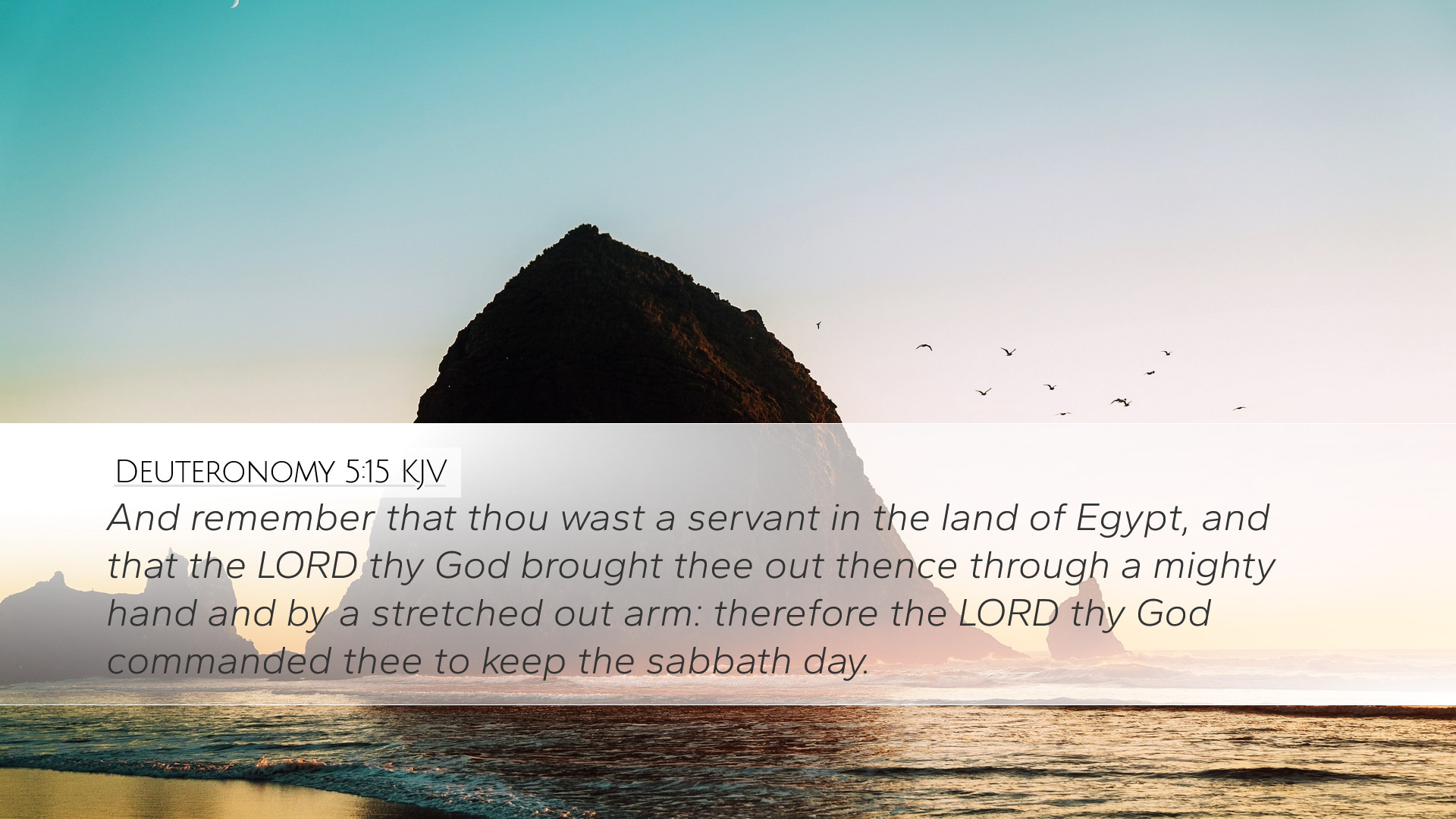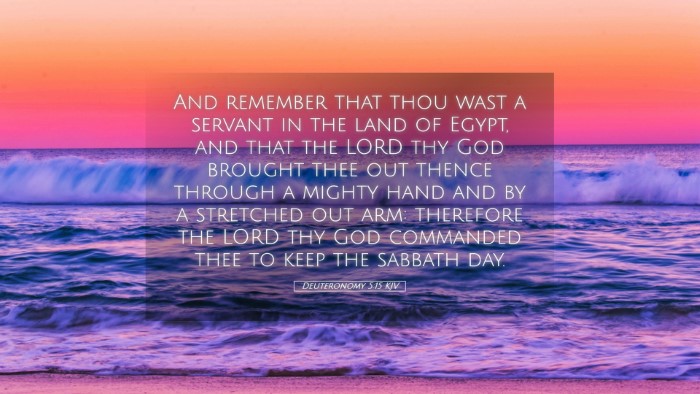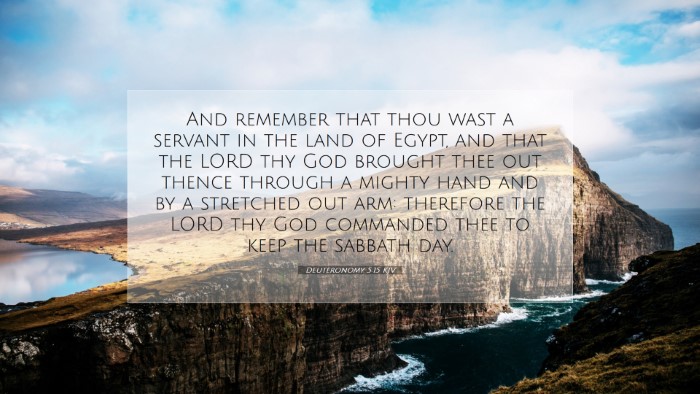Commentary on Deuteronomy 5:15
Bible Verse: "And remember that you were a slave in the land of Egypt, and the Lord your God brought you out from there with a mighty hand and an outstretched arm. Therefore the Lord your God commanded you to keep the Sabbath day." (Deuteronomy 5:15)
Introduction
The commandment to observe the Sabbath is deeply rooted in the historical context of Israel's deliverance from Egyptian bondage. This verse serves as both a theological reminder and a moral imperative, emphasizing the need for remembrance and gratitude towards God’s redemptive actions.
Thematic Overview
This verse draws attention to several key themes:
- Remembrance of Deliverance: It calls the Israelites to recollect their previous state of slavery, fostering a spirit of humility and thanksgiving.
- God’s Sovereign Power: The phrase "mighty hand and an outstretched arm" illustrates God’s omnipotence and His ability to save His people.
- Divine Command and Moral Duty: The connection between remembrance and the observance of the Sabbath reinforces the idea that honoring God’s commandments stems from recognizing His mercy and power.
Historical Context
Deuteronomy, often regarded as Moses' farewell address, encapsulates the laws given to the Israelites before entering the Promised Land. The mention of Egypt serves as a crucial reminder of their past, providing a backdrop for understanding their identity as God’s chosen people.
Matthew Henry's Commentary
According to Matthew Henry, the observance of the Sabbath is tied directly to the memory of deliverance from slavery. He notes that the Israelites are to recognize their former bondage and rejoice in their newfound freedom given by God. This remembrance not only fosters gratitude but also encourages social responsibility among the community, leading them to offer rest to others as they themselves have received rest.
Albert Barnes' Perspective
Albert Barnes emphasizes that the narrative of escaping Egypt underlines the importance of the Sabbath. He argues that the Sabbath serves as a physical manifestation of the rest God provides. Barnes points out that this day of rest is a reminder of both God’s creative power and His liberating work. By resting, God’s people acknowledge their dependence on Him rather than their own toil.
Insights from Adam Clarke
Adam Clarke offers a detailed observation that the Hebrew understanding of slavery is not merely physical but also spiritual. Clarke suggests that the mandate to remember their time in Egypt serves to remind the Israelites of their need for daily reliance on God. He urges readers to see the Sabbath as an opportunity for spiritual renewal and civic reflection, guiding them towards living in holiness as a community.
Theological Implications
The verse has profound implications for understanding God's character and His relationship with humanity. It emphasizes that:
- God as Redeemer: The mention of deliverance demonstrates God's desire to free His people not only from physical oppression but also from spiritual bondage.
- The Importance of Rest: The Sabbath serves as a divine institution for rest and reflection, allowing believers to rejuvenate physically and spiritually.
- Living Out God’s Commands: The directive to keep the Sabbath is not merely legalistic but relational, fostering a deeper connection with God and with each other.
Practical Applications
For pastors, students, and theologians alike, the practical implications of Deuteronomy 5:15 can be profound:
- Encouragement to Practice Sabbath: Clergy should encourage their congregations to observe a day of rest, recognizing the value it brings to spiritual and communal life.
- Teaching Remembrance: Engage in teaching sessions that focus on the stories of God’s deliverance, linking them to contemporary experiences of liberation and grace.
- Promoting Community: Foster a culture within the church that mirrors the social responsibility depicted in this commandment, seeing every Sunday as a communal celebration of freedom and rest.
Conclusion
Deuteronomy 5:15 encapsulates a rich tapestry of history, theology, and moral guidance. Through the remembrance of past deliverance, believers are called to observe the Sabbath as a token of God’s love and power. The insights from public domain commentaries enrich our understanding and application of this verse, shaping not only individual faith journeys but also the collective life of the church.


